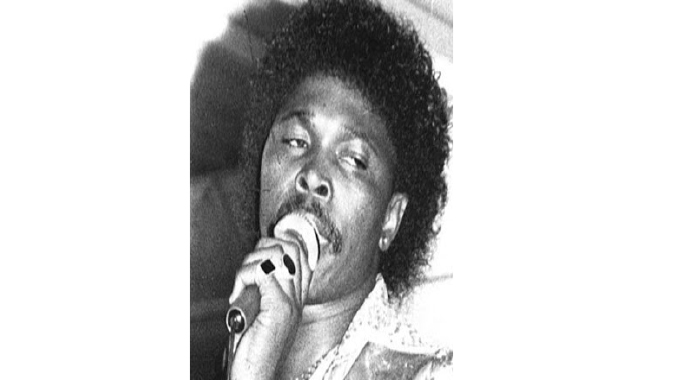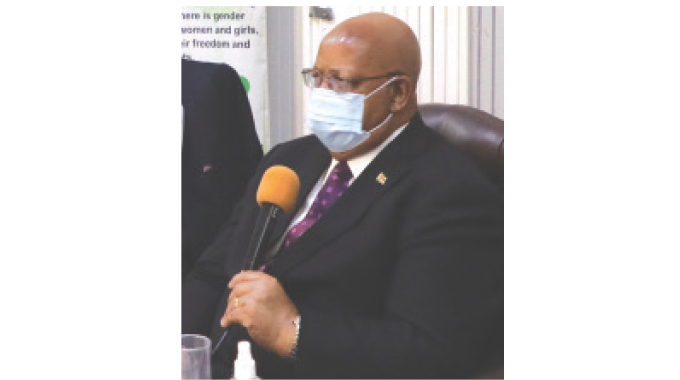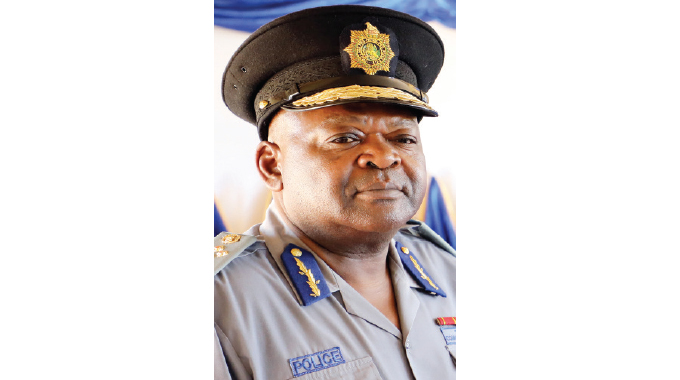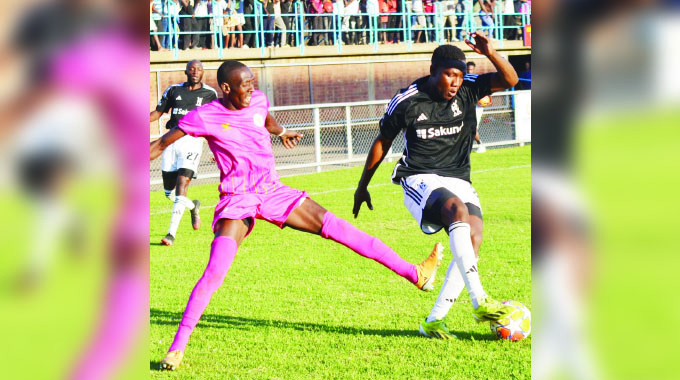Exploring the nexus between Majaivana’s music and Bosso trailblazing run

Dingilizwe Ntuli, Sports Editor
IT has been said that wine improves with age, but what about music? Does music get better as the years go by?
Certain music is infectious and still feels fresh with every new listen. Some songs are hard to get bored of and actually evoke memories, conjuring up old echoes of the past at different stations in life.
A line in the late reggae great Bob Marley’s track Trenchtown Rock says “one good thing about music is that when it hits you, you feel no pain; hit me with music”.
One such song that still resonates is the 1980s hit tune Badlala njani by popular musician Lovemore Majaivana.
The song is a tribute to Highlanders’ yesteryear greats and was released at a time Bosso were at their fearsome best in the first decade of independence, rolling over their opponents with ease.
Majaivana sang “iTshilamoya ayila mathambo, kodwa idlala njani ingela mathambo” in awe to the wonders the players displayed on the pitch.
In African context, there is widespread belief that a person cannot achieve outstanding success without some mystic powers behind them and Majaivana was debunking that myth in his Bosso praise song.
Badlala njani became the club’s unofficial anthem and was blasted from car radios every Sunday mornings, hours before Bosso were due to play at Barbourfields Stadium.
It whipped up emotions among the club’s supporters, who responded by packing Barbourfields Stadium to the rafters as they went to watch the players Majaivana eulogised.
And true to the passion Majaivana translated into the song, the players never seemed to disappoint, immortalising the song in the Bosso fans’ hymn books.
Badlala njani was released more than 30 years ago, but it now sounds even better the more one listens to it.
In fact, the older Bosso fans love it even more than the first time they heard it more than three decades ago.
Perhaps most of the club’s fans indulge in that throwback because it makes them happy, especially when their team is not performing well.
There is so much brilliant music out there, but it’s a simple fact of life that older people reminisce about the glory days, and therefore, Badlala njani cushions older Bosso fans from the realities of the team’s continuous under performance compared to the giants that Majaivana immortalised in the song.
Few oldies have the fervent following Majaivana’s Badlala njani has.
Maybe he was ahead of his time and that probably explains why he commanded a huge following without significantly varying his musical style.
The Bosso players of the era of the song were outstanding and the club’s fans of different ages cannot stop celebrating them more than 30 years later.
Even the new generation of fans, who were too young or not yet born when the song was released, or never watched any of the greats mentioned in the song, love the song and blast it in their cars whenever Highlanders win, just like those before them in the 1980s.
When the yesteryear greats joined Highlanders, they wanted to be remembered for competing, but they could have never predicted that their performances would be magnified in song and leave a lasting impression even on fans that never watched them playing.
In the song, Majaivana mentions 24 former Bosso greats, among them Ndumiso Gumede, who was club chairman at the time they made Barbourfields Stadium a fortress and slaughterhouse of visiting teams, coach Barry Daka and team manager Lawrence Phiri.
Others were goalkeepers Peter Nkomo and Joseph Tembo, forwards Netsai Moyo, Madinda Ndlovu, Abraham Madondo, Nhamo Shambira and Morgen Phiri; midfielders Tito Paketh, Titus Majola, Ernest Sibanda, Willard Khumalo and Tymon Mabaleka; defenders Richard Ndlovu, Fanuel Ncube, Douglas Mloyi, Alexander Maseko, James Nxumalo and Boet Van Ays, strikers Josiah Nxumalo, Tommy Masuku and Dumisani Ngulube.
Sadly though, more than half of these greats eulogised in this timeless classic are now deceased.
These include the song producer Mabaleka, who became a successful music executive after hanging up his boots and went on to produce all Majaivana’s songs under the Gramma Records label, Tembo, Shambira, Phiri, Majola, Khumalo, Mabaleka, Richard Ndlovu, Ncube, James Nxumalo, Masuku and Ngulube.
Majaivana returned to the studio to pen a painful tribute to Majola called Bambulele uMajola in memory of the popular midfielder who was knifed to death at a Bulawayo night club while trying to stop a fight at the end of August 1989.
Gumede said it pains him that the club had lost so many greats to death, but reminisced about those good old days when opponents trembled at the sight of the huge vociferous crowds at Barbourfields Stadium.
The song Badlala njani, Gumede said, captured Bosso’s trailblazing sides of the 1980s and mood among their fans in Bulawayo.
Before Majaivana released the song, Gumede recalls him flying around the idea of doing a song about the club.
“I sometimes used to join his band for performances on stage back then because I enjoyed his music. One day he just said he was thinking of writing a song about the team, but he never came back to us and the next thing we just heard the song being played on radio,” said Gumede.
“So, the song was Majaivana’s own initiative and there was no input from us. It was his and his alone, but we loved it, our fans loved, and it just became our fans’ song of choice, especially after watching live the players in the song doing exactly what he sang.
“I recall a certain man that would park his open truck just outside Barbourfields Stadium and would play the song with volume at full blast each time Highlanders scored. Hearing the song playing outside further lifted the fans’ spirits and their cheering would become louder and louder intimidating our opponents,” he said.
Gumede said he longed for such days when Bulawayo would almost come to a standstill when Bosso had a game at Barbourfields.
He blamed Highlanders’ deteriorating performances on successive executive committees’ abandonment of their predecessors’ incomplete projects.
He believes if projects had been embraced as Bosso’s and not the outgoing executive committees’ Bosso’s fortunes would have been totally different.
However, despite their flaws, Gumede still believes in the Highlanders’ dream and hopes they will soon get it right both on the administrative side and on the field of play.












Comments